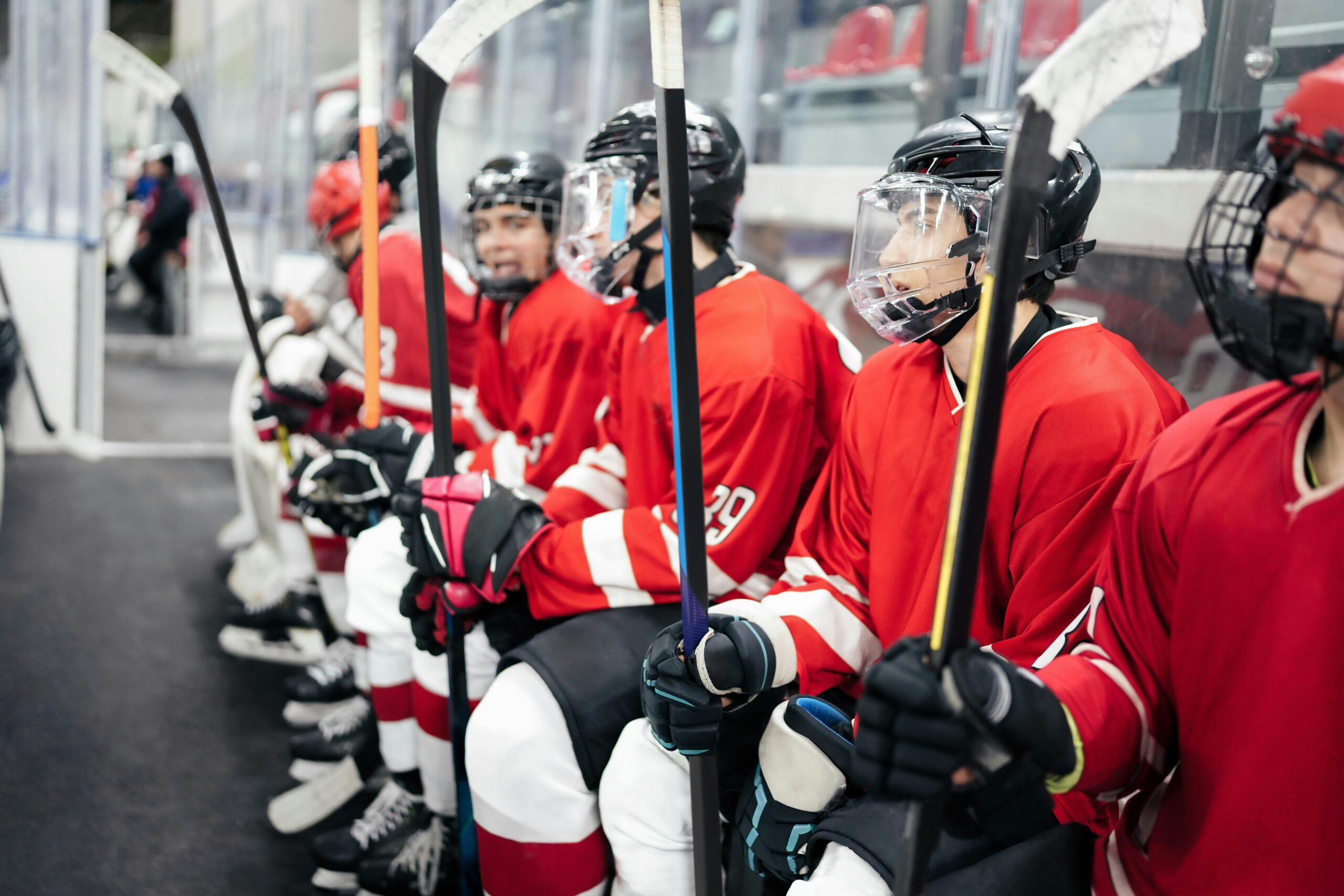
Coaching young hockey players goes beyond teaching skills and tactics. The key to success is inspiring and developing players so they excel and enjoy their journey. As a coach, fostering an environment of growth, trust, and motivation will impact your team’s success. Here are some effective strategies to lead, inspire, and develop young hockey players.
Build a Positive and Supportive Team Culture
One of the first steps in leading young hockey players is to create a positive and supportive team culture. Children need to feel valued and encouraged in the early stages of their hockey careers. The way a coach communicates with players is essential to shaping this environment.
A positive culture involves recognizing effort, fostering teamwork, and emphasizing respect on and off the ice. This encourages players to take risks and try new things without fear of failure. Coaches should focus on building trust by being approachable and supportive. When players feel they are in a safe space, they will be more likely to push themselves and grow.
Another way to build this culture is by creating team-building activities. These can range from ice time drills to off-ice exercises designed to promote cooperation and communication. Encouraging players to support each other during games and practices helps foster friendships, further solidifying the team bond.
Emphasize Skill Development Over Winning
At the youth level, the focus should always be on skill development rather than simply winning games. While winning can be a great motivator, it is more important for players to understand the fundamentals of the sport. A coach who emphasizes skill development will create well-rounded players who can grow into leaders in the game.
When developing young players, it’s essential to tailor practices to work on specific skills such as passing, shooting, skating, and positioning. Players can build a solid foundation by breaking these skills into smaller, manageable steps. The game will become more enjoyable as they improve in these areas, and their confidence will grow.
A great way to ensure skill development is to set individual goals for each player. These goals should be specific, measurable, and achievable, with regular feedback from the coach. It’s essential that the player understands their progress and knows where to improve. Players will feel motivated to reach their full potential by focusing on these incremental improvements.
Encourage a Growth Mindset and Resilience
A growth mindset is one of the most crucial traits a coach can instill in their players. This mindset encourages players to see challenges as growth opportunities rather than obstacles to overcome. Players with a growth mindset are more likely to persevere through difficult situations and become better athletes because they understand that effort leads to improvement.
Coaches should encourage players to embrace failure as part of the learning process. When mistakes happen on the ice, they should be viewed as teachable moments rather than opportunities for criticism. Young players will become more resilient by focusing on what went wrong and how to improve. They will learn to keep trying, even when things don’t go their way.
A coach can promote a growth mindset by regularly praising effort, perseverance, and determination. Recognizing players who show resilience, even in tough moments, can motivate the entire team. Remember, hockey is a game of constant learning, and failure is a part of growth. When supported through setbacks, players become more mentally tough and focused.
Foster Leadership Skills and Responsibility
Developing leadership qualities in young hockey players is essential to their overall growth as athletes and individuals. By allowing players to lead, whether through captaincy, peer support, or on-ice decision-making, coaches can prepare them for future roles.
Leadership on the ice doesn’t always mean being vocal. It can also involve setting a good example by working hard during practice, showing sportsmanship, and maintaining a positive attitude. Coaches can encourage leadership by rotating team captains and assigning different responsibilities to players. This helps players understand the value of teamwork, accountability, and communication.
Off the ice, leadership can be developed through team activities that require collaboration and problem-solving. Coaches should also create opportunities for players to mentor each other through buddy systems or leadership workshops. When young players are given responsibilities, they feel empowered, increasing their sense of ownership and commitment to the team.
Maintain Open Communication and Set Expectations
Effective communication is the foundation of successful coaching. Coaches must establish clear expectations for both individual players and the team as a whole. This involves regularly communicating about goals, values, and areas for improvement. Ensuring players know what is expected gives them direction and reduces confusion during practices and games.
Open communication should be two-way. Players should feel comfortable approaching their coach with questions or concerns. This open dialogue fosters trust, making it easier for coaches to address issues as they arise. When players feel heard, they are more likely to respect their coach and stay committed to the team’s success.
Additionally, coaches must set clear behavioral expectations and model good communication themselves. Whether through feedback after practices, group discussions, or one-on-one meetings, maintaining an open line of communication helps players stay focused and engaged. They are more likely to be motivated and focused when understanding their roles and the team’s goals.
Leading and developing young hockey players requires dedication, patience, and a focus on growth. Coaches who build a positive team culture, emphasize skill development, encourage a growth mindset, foster leadership, and maintain open communication set their players up for success on and off the ice. By focusing on these strategies, coaches can inspire young players to reach their potential, becoming better hockey players and more resilient, disciplined, and confident individuals. With the right guidance and encouragement, the future of hockey is in great hands.